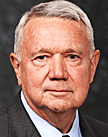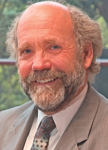City Charter
Ethics? Who gives a damn?
AG Sues to Remove Planning Commissioners
Attorneys Argue CodeNEXT Petition
Grass-roots democracy pushing petition
Get on Ballot for May 2012 Election
Austinites for Geographic Representation
Needs 20,000 Signatures by Mid-January
by Ken Martin
© The Austin Bulldog 2011
What we want? Council districts!
When do we want them? Now!
How will we get them? Petition!
When do we start? Now!
Such might be the chants of members of Austinites for Geographic Representation if they were to take to the streets like the protestors of Occupy Wall Street and Occupy Austin.
But you won’t be hearing chants from the members of this grass-roots citizens initiative to get on the ballot a proposition to establish a nonpartisan Independent Citizen Redistricting Commission that would draw 10 council districts that the Austin City Council would have no choice but to adopt. The group’s plan calls for only the mayor to continue being elected at-large.
Austin is the most populous city in the United States to elect its entire city council at-large, and the only major metropolitan city in Texas to do so, according to a report produced last month by City Demographer Ryan Robinson. Austin voters, however, have voted down propositions for some form of council districts six times between 1973 and 2002.
Austinites for Geographic Representation has scheduled a press conference for noon tomorrow at City Hall and a campaign kickoff rally 3-5pm Saturday at Mexitas Restaurant, 1109 N. I-35. The group has leased an office at 7901 Cameron Road and formed a Specific Purpose Political Action Committee whose treasurer, Stacy Suits, ran two unsuccessful campaigns for geographic representation in 1985 and 1988.
 The petition drive is being organized by Linda Curtis of ChangeAustin.org. Curtis has previously led four successful petition drives to get measures before Austin voters. This petition campaign is not employing paid signature gatherers but instead has formed a broad coalition of community organizations that will actively circulate petitions. This initiative has been endorsed by a number of organizations including ChangeAustin.org, Del Valle Community Coalition, El Concilio, Gray Panthers of Austin, LULAC District 7, LULAC District 12, NAACP Austin, Texans for Accountable Government, Travis County Green Party, and University of Texas at Austin Student Government.The League of Women Voters Austin Area is meeting tonight to consider endorsing the initiative, said chapter president Stewart Snider. The Austin Neighborhoods Council may consider an endorsement at its October 26 meeting. (To see a complete list of organizations and individuals endorsing this initiative, click here.) The petition drive has a Facebook page and will soon publish petition forms online.
The petition drive is being organized by Linda Curtis of ChangeAustin.org. Curtis has previously led four successful petition drives to get measures before Austin voters. This petition campaign is not employing paid signature gatherers but instead has formed a broad coalition of community organizations that will actively circulate petitions. This initiative has been endorsed by a number of organizations including ChangeAustin.org, Del Valle Community Coalition, El Concilio, Gray Panthers of Austin, LULAC District 7, LULAC District 12, NAACP Austin, Texans for Accountable Government, Travis County Green Party, and University of Texas at Austin Student Government.The League of Women Voters Austin Area is meeting tonight to consider endorsing the initiative, said chapter president Stewart Snider. The Austin Neighborhoods Council may consider an endorsement at its October 26 meeting. (To see a complete list of organizations and individuals endorsing this initiative, click here.) The petition drive has a Facebook page and will soon publish petition forms online.
The petition drive, if successful, would force the city council to put its own proposed charter amendmentson the May ballot as well.Article XI, Section 5 of the Texas Constitution states that “no city charter shall be altered, amended or repealed oftener than every two years.” To prepare for that possibility, the 2012 Charter Revision Committee has a January 31 deadline to submit its recommendations for council consideration.
Charter committee backs seven changes
Council election date to be set Friday
How Mayor and Council Members Elected
Community Coalition, Austin Neighborhoods Council
and Charter Revision Committee All Working on Issues
by Ken Martin
© The Austin Bulldog 2011
There's a showdown coming in a Austin City Council meeting scheduled for Thursday and a special-called council meeting on Friday.
The result will decide whether the next election for a mayor and three council members will be held in May or November 2012. Both options are on the table as the sole items posted for action in the Friday meeting scheduled to begin at 1:30pm.
Council proponents of the May 2012 election were ready to vote on second reading at today’s work session and third and final reading at Thursday’s regular meeting.
But discussion today reminded council members that the rules they adopted March 2 preclude taking action during a work session. That triggered the posting of a special-called meeting on Friday.
Assuming none of the four council members who previously voted for a May 12 council election changes their position (Sheryl Cole, Laura Morrison, Bill Spelman and Kathie Tovo), the Friday meeting will give final approval for that date.
An item on Thursday’s council agenda would authorize $500,464 for Travis County to purchase electronic voting machines to support the May election.
Mayor Lee Leffingwell asked County Clerk Dana DeBeauvoir and City Clerk Shirley Gentry to provide the council with the total estimated cost to be incurred in holding a May 2012 election. He noted that whatever that cost is, it will be in addition to the cost of a November 2012 election that is likely to be held to vote on other matters.
While the next election for a mayor and three council members may be seven months away, a host of factors affecting the outcome of that election are very much in play, including a possible petition drive for a charter amendment to change the way council members are elected.
Petition could force May charter election
Coming soon a petition drive for council districts
for Grass-roots Council District Plan
Council-Appointed Charter Revision
Committee’s Plan Due January 31
by Ken Martin
© The Austin Bulldog 2011
A petition drive to trigger a City Charter election for council districts will soon be launched by a growing coalition of individuals and organizations that want to promote their own grass-roots plan instead of backing whatever the City Council may put on the ballot.
Austinites for Geographic Representation voted unanimously Monday night to support a plan that would allow election of 10 council members from geographic districts. Only the mayor would continue to be elected at-large if the plan this group advocates gains voter approval.
Meanwhile the city council has initiated a process to formulate its own plan for some form of geographic representation in council elections.
The City Council passed a resolution August 4 that established a 2012 Charter Revision Committee of 15 members to be appointed by August 25. The mayor will appoint three members and each council member will appoint two members.
The resolution directs the Committee to consider the proposed maps that were presented to the council June 9 and meet at least once to consider maps submitted by the public and at least once to discuss its recommendations to the council. The Committee is also directed to seek public input.
 Mayor Lee Leffingwell has long advocated a new system in which six council members would be elected from districts, and two council members and the mayor would be elected at-large. The council resolution, however, gives the Committee leeway to recommend a map that includes any combination of at-large and geographic representation. The Committee will dissolve after submitting its recommendations due by January 31.
Mayor Lee Leffingwell has long advocated a new system in which six council members would be elected from districts, and two council members and the mayor would be elected at-large. The council resolution, however, gives the Committee leeway to recommend a map that includes any combination of at-large and geographic representation. The Committee will dissolve after submitting its recommendations due by January 31.
Any election is not likely to occur before November 2012, due to the changes mandated by Senate Bill 100 that preclude holding a city council election in May.
SB 100 authorizes the City of Austin to move its next election to November 6, 2012, and adjust the terms of office to conform to the new election date. Further, SB 100 allows the City of Austin to opt for election of all council members at the same election, superseding City Charter requirements for council elections to be conducted in May and terms to be staggered.
Citizen plan minimizes politics
City Council’s Stealth Pay Raises
Fly Under the Public Radar
County Commissioners Court Raises
Require Published Notice, Signed Approval
by Ken Martin
© The Austin Bulldog
 The Austin City Charter (Article 1, Section 2) establishes the city council as the city’s policy making body. But when it comes to giving themselves a pay raise, the mayor and city council members are just part of the rank and file.
The Austin City Charter (Article 1, Section 2) establishes the city council as the city’s policy making body. But when it comes to giving themselves a pay raise, the mayor and city council members are just part of the rank and file.
When city employees get a raise, so do council members—automatically, without any public disclosure required.
The mayor and council members have obtained three such raises in the last four years. While the cumulative amount of these recent raises has been relatively small, the process is far from transparent.
From 2000 to 2010, the mayor’s salary has increased 124 percent, council members’ 109 percent.
Adding to the lack of transparency, salaries for the mayor and council members are not posted anywhere on the city’s website, a fact confirmed by the city’s public information office. Council payroll documents for the past five years were obtained by The Austin Bulldog through submission of an open records request and payment of $127 in fees to retrieve and search boxes of older records. Because of the city’s inadequate initial response to the request, incomplete records, and the city’s changing methodology for documenting council pay changes, clarity was achieved only after submitting numerous follow-up e-mails to city officials to obtain answers.
The city’s current system of pay raises for the mayor and council members was established November 16, 2006, when the council led by Mayor Will Wynn voted unanimously to pass Ordinance 20061116-081. This ordinance grants future raises to the mayor and council members “...equal to the base percentage amount established for ‘meets expectations’ compensation adjustments for non-Civil Service employees.” (Only police and firefighters are civil service employees and their pay is determined by contracts. The rest of the city’s 12,000 workers are not civil service employees.)
 Tom “Smitty” Smith is director of Public Citizen Texas, a nonprofit group that addresses a broad range of public policy issues, including what it calls "clean government” by working to hold public officials accountable.
Tom “Smitty” Smith is director of Public Citizen Texas, a nonprofit group that addresses a broad range of public policy issues, including what it calls "clean government” by working to hold public officials accountable.
“I think Austin City Council members should be well paid, comparable to the other 20 large metropolitan cities in the United States,” Smith says, “because it’s more than a full-time job.
“But council members pay raises should not be done through subterfuge,” Smith says.
Smith says the Texas Legislature is an example of more extreme subterfuge. When our low-paid lawmakers vote to raise judicial salaries they are actually voting to raise their own retirement pay, because their retirement pay is pegged to judicial salaries.
The preferred way to address salaries for council members, Smith says, is for the city auditor or some other disinterested official to establish a citizens committee removed from council influence that would study compensation issues and make recommendations for the council to adopt.
While the City of Austin’s methodology is opaque, this below-the-radar procedure is permitted by Local Government Code Section 141.004, which states, “The governing body of a home-rule municipality may set the amount of compensation for each officer of the municipality.”
County commissioners are much more closely regulated. In fact, Local Government Code Section 152.013 requires newspaper publication of a notice of any salaries, expenses, or allowances that are proposed to be increased for all elected county or precinct officers—including the amount of proposed increases—more than 10 days before the commissioners court meets for a budget hearing and adopts the budget. To view the ad published for the current fiscal year click here.
County commissioners must publicly vote on these proposed pay increases. Then, each member of the commissioners court must personally sign the order setting salaries for elected officials, including their own. To see the order for the current fiscal year click here.
Council raises 2000 to 2010
Proposed City Charter Amendments
to Create Geographic Representation
and Other Charter Changes in Council Resolution
by Ken Martin
© The Austin Bulldog 2011
Geographic representation for the citizens of Austin is being driven from the top down and the bottom up. The Austin City Council is squeezed in the middle and trotting out its own proposal at today’s council meeting.
The pressure from the top comes from bills pending in the Texas Legislature that would force the city to form at least six single-member districts for the May 2012 election, when the mayor and three council members will be up for reelection.
The bottom-up pressure comes from the possible petition drive that if successful could result in a citizen-driven plan for geographic representation of council members to be put on the ballot this November or the following May.
Barring interference from the legislation or an earlier election forced by a successful petition drive, the city’s proposal is geared to be on the ballot in November 2012.
The Austin City Council is scheduled to vote today on a resolution that would direct the city manager to prepare draft City Charter amendments to accomplish a range of reforms. Among these are adding geographic representation to the council, consisting of six members elected from districts, with the mayor and two members elected at-large.
The resolution further directs: moving municipal elections from May to be held in November of odd-numbered years; increasing the term of office from three years to four years; and eliminating staggered terms, so that all council members would be elected once every four years (except for special elections for unexpired terms).
Charter changes for geographic representation on the council have been on the ballot six times and failed six times.
Broad support for council districts







